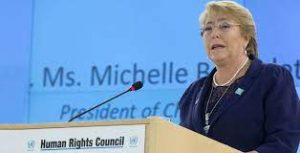
Two summits completed and another off in the distance, but impacted by these just completed summits. A crowded summit schedule has begun.
The statements were voiced and the Leaders’ Communique issued by the G7 at Schloss Elmau to be followed by more speeches and statements and the issuing of the “Strategic Concept” a once ever ten year statement by NATO at Madrid.
What have we learned from this G7 and the NATO gatherings? Let me first focus on the G7 Summit. Well, first it is relevant that we take into account the position expressed by one of the longstanding observers of the summit process, Sheffield’s Hugo Dobson. As he concluded, along with his colleague Greg Stiles in Global Policy , reflecting their review of the German G7 and in particular the Leaders’ Communique:
In summary, and despite what we have tried to do here, beware reading too much either positively or negatively into a single summit document. Rather, this communiqué should be placed in the context of a network of summits – most immediately the NATO Summit in Madrid later this week and looking further ahead to the Indonesian-hosted G20 Summit later this year.
And it is a summary and caution well worth heeding. Nevertheless, the tone is worth further comment. The G7 took the time and the Communique to underscore their self characterization as a democratic forum. In their Communique opening the G7 declared:
As open democracies adhering to the rule of law, we are driven by shared values and bound by our commitment to the rules-based multilateral order and to universal human rights. As outlined in our Statement on support for Ukraine, standing in unity to support the government and people of Ukraine in their fight for a peaceful, prosperous and democratic future, we will continue to impose severe and immediate economic costs on President Putin’s regime for its unjustifiable war of aggression against Ukraine, while stepping up our efforts to counter its adverse and harmful regional and global impacts, including with a view to helping secure global energy and food security as well as stabilising the economic recovery.

